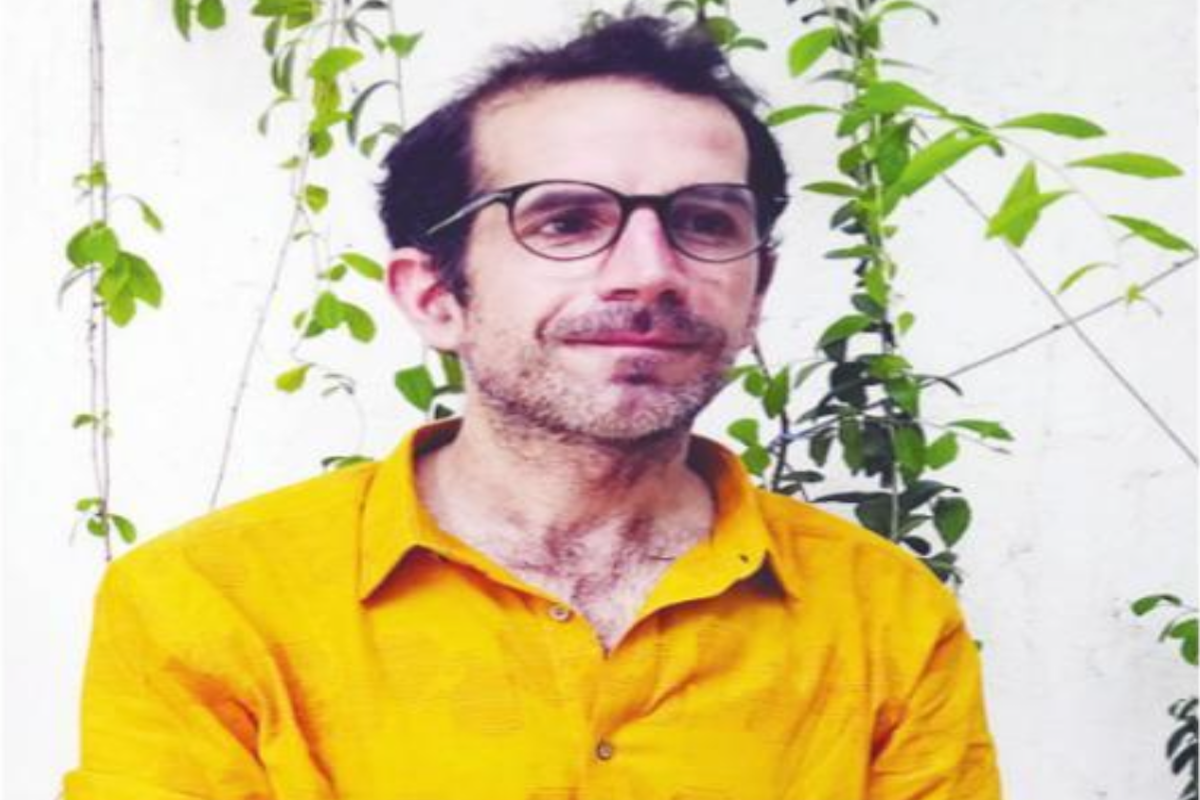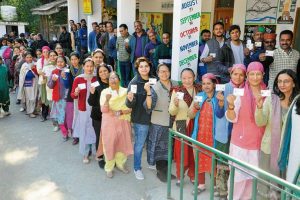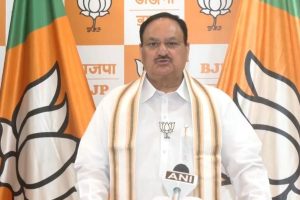The Alliance francaise du Bengal in association with The French Institute in India welcomed an eminent press cartoonist from France, Julien Berjeaut popularly known as Jul, to Kolkata. He has worked for a number of French magazines and newspapers, including Charlie Hebdo, Le Nouvel Observateur, and L’Humanité, among others. In September 2012, he was awarded the rank of Knight in the Order of Arts and Letters. Thirty years ago he spent a few months in Kolkata and Santiniketan to work on a historical research paper. In conversation with Soumyadip Mullick, he discusses freedom of expression for an artist in a world where democracy and secularism are under threat. The cartoonist felt there should be more room for dialogue in a democracy instead of violent attacks and curbs on artistic freedom.
Excerpts:
Q. You worked as a press cartoonist with organisations such as Charlie Hebdo whose office in Paris was attacked, and staff gunned down by Islamic radicals as a reaction to published caricatures of the Prophet. France, like India, is a secular country. Do you feel every time a cartoon draws such a backlash, the very essence of secularism gets attacked?
A. If you are offended by a cartoon, it is legitimate to express it through disappointment or anger. That is how democracy works. It gives you room for freedom of expression. The world need not be a place where everybody loves everybody. Limit is crossed when one resorts to violence or physical violence. That takes matters too far. Context is important to understand how a cartoon can be offensive or not, or whether it should be published. It’s the responsibility of the creator and their team. When you address a special readership, the content is not supposed to get disseminated further but because of social media and the internet in today’s age, it reaches the unintended audience, causing offence. If your caricature is from Denmark, whether it’s on racism or Islam, it is not supposed to be released in countries like
Pakistan or other Islamic countries. Artists cannot prevent themselves from creating. There is no straight answer to how to prevent such violent reactions. The least the creators can do is be cautious and plan.
Q. Do you feel the right to freedom of expression also includes the right to criticise religion?
A. This is what most of France and the rest of Europe believes. Criticising is not banning, attacking or harming physically. As a creator, I might not like criticisms of my work or having my beliefs questioned. I might feel angry or insulted but I have to cope with that. This is how mature people can live together. Communities can live together. You can learn from criticisms, at times. There is always a scope for dialogue. This is what I believe is important.
Q. You have visited India before and now you are in this country once again. What do you think has changed in terms of freedom of expression in what is considered the world’s largest democracy?
A.I was in India a quarter of a century ago. The situation now is completely different. India, like many other countries has been facing high pressure on creation and freedom of speech. You can see attacks on journalists, writers, and cartoonists. This is so disappointing and dreadful. But it is not that France is insulated from such threats. We just had our elections recently and there was a risk of some orthodox powers seizing power in France. This is what we must be cautious about. I hope people will soon understand that it is not bearable that one has to be cautious every time they say something or write. But it is also good in a way for everyone, even for opponents, to develop. Sometimes it strengthens you. There needs to be a balance in a society like it exists in nature. I hope this balance will be taken into consideration and this prevailing pressure in India will subside.
Q. In Kolkata, a professor was once arrested because of making caricatures of the chief minister. Intolerance is also apparent in the educated sections of society, including leading political figures. Why is it so?
A. Actually it’s very humane to be afraid, and not be brave. If you belong to an elite class, at times you don’t want to be cast aside by your people. So even if you think a cartoon is tolerable or harmless, you pretend to take offence and see it as a problem to express some form of tribal solidarity with your people. There is probably a lot of hypocrisy among well-educated people and the progressive elite.
Q. Cartoons in the past have been made on several religions but violent reactions came when caricatures were made of Islamic figures. Reactions were terror attacks and murders. Do you feel Islamic radicals pose a bigger threat?
A. I don’t really believe so. This is what people tend to say in any circle, whether in India or France. I think there are attacks or pressures towards Muslims as well. There is a lot of racism in society. It is so unfair for regular people who want to live with their beliefs and religions. People should be allowed to live their own lives freely in peace and security. It is difficult to believe that one can be attacked at the drop of a hat.
We should channelise our objections or criticisms through a constructive process such as debates or art. Violence is condemnable irrespective of where it is coming from. One can have issues raised with religions but attacking someone physically, cannot be tolerated. Respect for all human beings and communities is essential.
Q. How did you come to take up the profession of a press cartoonist? Would you say a political cartoon is a form of emancipation in a perhaps lost struggle?
A. Maybe it’s a lost struggle. I haven’t been a press cartoonist for the last 10 years. I was not in the line of Charlie Hebdo before it was attacked. I was fed up with having to comment on every single thing happening in the news, having to have a point of view on matters I don’t know about. So I felt it was a pressure I didn’t want to take. Due to the social network, every time something happens, millions of people are reacting. I didn’t want to develop in this direction.
I wanted to make my own fictional stories I.e. historical fiction, and mythological fiction. I am fed up with the quarrels and the polemics by people I don’t want to deal with such as politicians and radicals. I was a press cartoonist for 12 to 15 years for several French publications. My present life involves making full-length animation movies. This is more peaceful.
Q. When you say you are frustrated in having to deal with nonsensical reactions, do you think the powers that want to curb freedom of expression are winning?
A. It is also about ageing and time. There is now a new generation of young cartoonists, making good cartoons and having the energy and enthusiasm. There’s always a risk but there is also a silver lining.
Q. Your opinion on political cartoons in India. Do you feel they are thought-provoking, or playing safe and not wanting to annoy the political masters?
A. I haven’t seen any Indian political cartoons, lately. I don’t think there are many. It takes a lot of bravado and courage to be a cartoonist in India, today. Perhaps, some who are brave and doing it, France can provide some assistance to these artists.
Q. Any of your projects focused on India? How do you conceptualize your work? And name a cartoonist who inspires you.
A. I have this series ‘50 Shades of Greeks’ that I developed about ancient Greek gods. My characters, season after season, travel the world meeting new mythological characters. In the next season, they might meet their counterparts in Indian mythology. This will be a nice way to explore the subject. Personally, I don’t want to make only entertaining projects. I want to do things that reflect my state of mind, anxiety etc.
The Malaysian political cartoonist widely recognised as ‘Lat’ (Mohammad Khalid) has been an inspiration for me. He is a tremendous creator. About 6,000 books with cartoons are being released in France every year and hence there are many cartoonists whom I admire.











